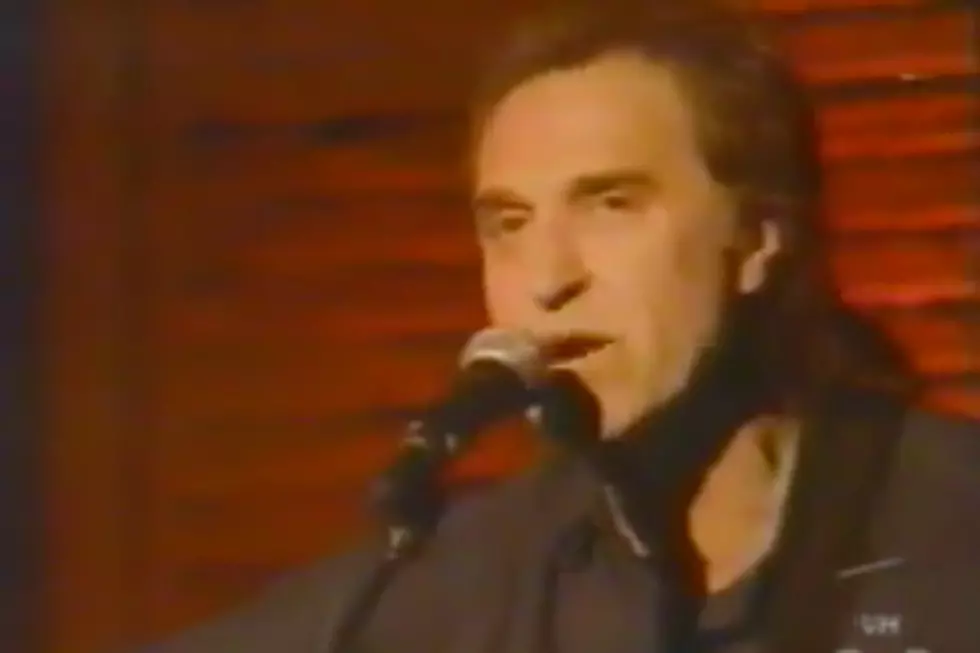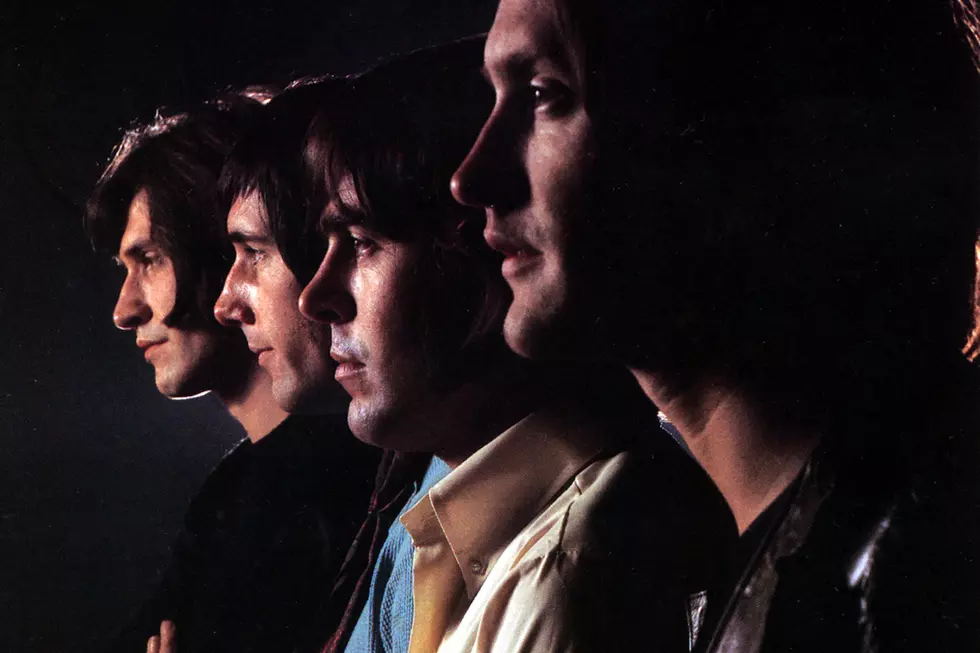
25 Years Ago: ‘VH1 Storytellers’ Debuts with Ray Davies
In February 1996, VH1 launched one of the most important series in the network's history with the premiere of Storytellers.
After originally beginning as the ugly stepsister to MTV - the music-video powerhouse that became a massive influence on pop culture - VH1 had slowly started to create its own identity in the late ‘80s and early ‘90s. The station skewed toward a slightly older audience, and while it still played videos by many popular mainstream acts, it also delved further afield into the worlds of adult contemporary and classic rock.
VH1 also positioned itself as the slightly more intellectual option. Rebranded in 1994 as "VH1: Music First," the channel appealed to music fans who wanted a deeper appreciation of the songs they love. It was with that notion in mind that Storytellers was brought to audiences.
Part intimate concert, part Q&A, the series looked to pull back the curtain and give fans unprecedented access to artists, as well as the songs they created. That first episode from February 1996 would star Ray Davies of the Kinks.
In front of an intimate crowd, armed with just an acoustic guitar and small backing band, the singer delivered several of his classic songs. The show began with “Lola”, the Kinks' beloved 1970 hit. It was followed by “Sunny Afternoon,” a track from 1966's Face to Face.
“It was written when I was in a period of what could my blue period,” Davies said of the latter tune. “I was overworked, extremely underpaid and the Kinks were going through a crisis, which is fairly normal for us.”
This exposition behind the song would be a key component of Storytellers, as Davies paused to tell stories throughout his entire set.
He talked about his family life, being raised as one of eight kids, and his early access to music. “My older sisters played all of their bebop records on the radiogram in the bay window of the front room,” Davies recalled. “They put on records by Johnnie Ray, Perry Como, Jo Stafford, Les Paul and Mary Ford.”
He talked about how their father would get drunk on Saturday nights, “come home from the pub and insist we have a party. Now I know where I got it from. So my brother, Dave, and I used to watch these adults and they’d all go out on a Saturday night, because everybody would come dancing.” This led straight into the Kinks classic “Come Dancing.”
Watch Ray Davies on the First Episode of 'VH1 Storytellers'
Further stories would follow. “London Song” was influenced by the Davies sisters’ stories of England’s famed city, while the Kinks frontman's experiences in “that strange, strange country called Los Angeles” inspired “Celluloid Heroes.” He also revealed that “To the Bone,” a track created for the Kinks’ 1994 live album of the same name, was originally going to be called “12 Inches and Black.” That title was a reference to vinyl records, but when Davies realized such a name might be interpreted in other ways, it was changed.
While performing “Well Respected Man” - a track Davies noted “turned things around for [the Kinks] in America” - he paused to address a pseudo-controversy within its lyrics. “There was one word in particular that really shook things up in America when this record came out,” Davies recalled, noting that it “caused a little stir on the East coast and parts of California.” The word was “fag,” but the Kinks frontman was careful to note the word was not used in a derogatory fashion. “The word fag where I come from is a Harry Rag. A cigarette. A rollup that my dad used to smoke,” the singer explained.
Prior to performing the band's breakthrough classic “You Really Got Me," Davies recalled hammering the song out on his parents’ piano for the first time, while his brother Dave joined on guitar: “Some of our sisters came in to listen. Mom hovered around the door, because we were renowned for making lots of noise in the neighborhood and she was afraid the neighbors would call the police. When we got through the song for the first time, our family applauded. I had written ‘You Really Got Me.’“
It was these personal anecdotes, giving the intimate details behind legendary tunes, that made the first Storytellers so captivating. At one point in the set, Davies who must have sensed that things were going well, joked that, “After this, they’ll get a series, they’ll copyright it and they’ll tell me to piss off.” His throwaway comment proved prophetic.
Storytellers struck a nerve with music lovers the world over. Following the show's 1996 debut, VH1 would continue producing new editions for nearly two decades. The regularity with which Storytellers episodes came out varied. Up until the turn of the millennium, roughly 10 new episodes came out each year. After that, the number dwindled closer to five annually, with older editions airing in repeats.
Still, performing on Storytellers became an achievement unto itself, proof and recognition of an influential career. A look at artists who played the show over the years reveals some of rock’s biggest names: Sting, Elton John, Paul Simon, Stevie Nicks, Elvis Costello, Tom Petty, Def Leppard, David Bowie, Phil Collins, Billy Joel, Ringo Starr, Bon Jovi, Bruce Springsteen, Foo Fighters - the list goes on and on.
The show's impressive run started with that debut Davies show. Had the initial episode been a flop, it's unlikely the series would have been given the chance to grow. At the end of his performance, the Kinks songwriter thanked the crowd in attendance, as well as those watching at home.
“That’s the end of our little experiment this evening,” he declared. “I hope you enjoyed it, bum notes, warts and all.”
Clearly, everyone did.






